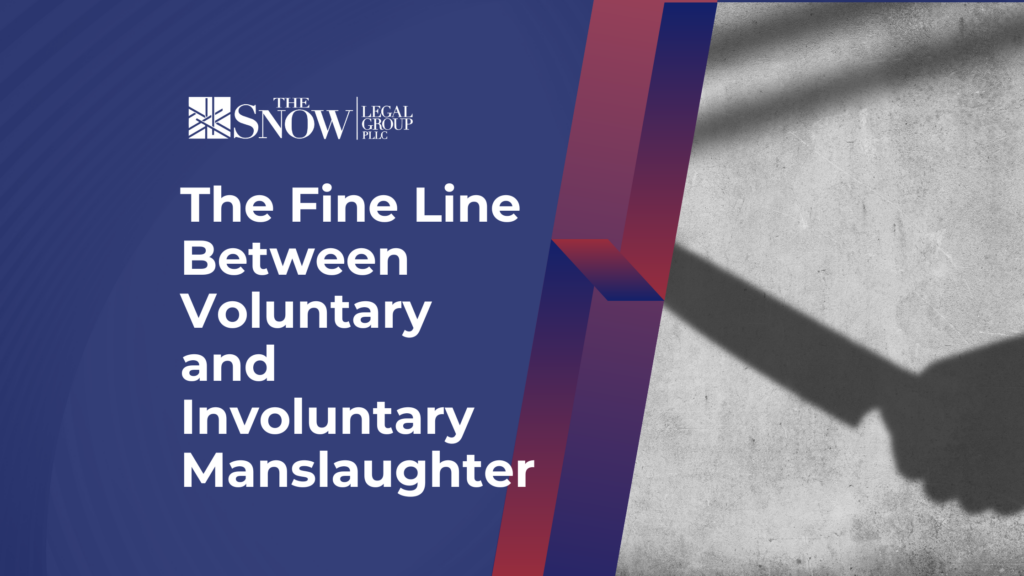
A life can be taken in the blink of an eye, leaving behind a complex web of emotional, social, and legal repercussions. When such tragedies occur, the law steps in to categorize the incident as either voluntary or involuntary manslaughter—each carrying its own set of consequences. The distinction between these two classifications is not just a matter of legal terminology but a determinant of how justice is pursued and served. This crucial differentiation affects the outcome of court cases and fundamentally alters the lives of everyone involved.
Voluntary Manslaughter
Voluntary manslaughter involves the unlawful killing of a person without premeditated intent but under circumstances that can legally mitigate, though not justify, the act. This may occur during moments of intense emotion that provoke a reasonable person to react violently. In legal terms, this might include killing someone in a sudden fight or after being provoked in a highly upsetting manner.
The law recognizes these situations as slightly less blameworthy than murder, which is planned and committed with intent. Therefore, voluntary manslaughter is a Class D felony, which is a serious charge that generally leads to imprisonment, even if the person has no prior criminal record. However, the courts may consider factors that could reduce the sentence, such as lack of prior criminal activity or evidence that the act was partially justified.
Involuntary Manslaughter
Involuntary manslaughter occurs when someone is killed due to another’s unlawful but unintentional actions. This type of manslaughter typically involves reckless or criminally negligent behavior that leads to an accidental death. For example, if a person violates a traffic law and causes a fatal accident, this could be charged as involuntary manslaughter.
This is considered a Class F felony, which is less severe than voluntary manslaughter but still carries significant penalties. This includes the possibility of imprisonment. Defendants may be eligible for probation, depending on the severity of their actions and their criminal history. Involuntary manslaughter significantly lacks the intent to kill, which is a key factor distinguishing it from voluntary manslaughter.
Protecting Your Future with Snow Legal Group, PLLC
If you’re arrested or accused of manslaughter, taking immediate steps to protect yourself is crucial. First, stay calm and avoid discussing the incident with police or bystanders, as these statements can complicate your defense. Politely decline to speak until you have legal representation. Contact a defense attorney at once—choosing someone with specific experience in manslaughter cases is vital. Additionally, make sure to keep all court appointments and adhere strictly to any bail conditions. These early decisions are essential for safeguarding your rights and setting a more controlled course through legal proceedings.Manslaughter charges profoundly affect your life and future. At The Snow Legal Group, PLLC, we pride ourselves on more than legal representation; we provide a lifeline during one of the most challenging times you might ever face. With us, you gain access to committed advocates who will stand by your side, equip you with the understanding you need, and fight for the best resolution. Reach out today to see how we can help you move forward.